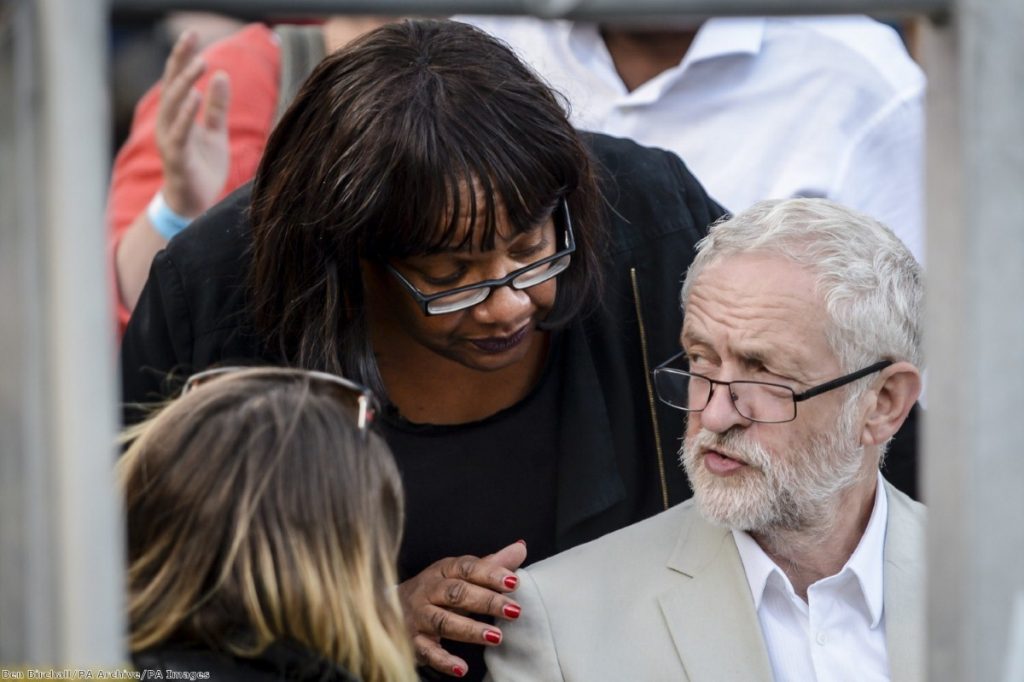By Chaminda Jayanetti
In one sense, Jeremy Corbyn's interview on the Andrew Marr show last Sunday didn't change anything.
He maintained Labour's position – which he stated during the election campaign – that leaving the EU meant leaving the single market.
He set out that free movement of people would end, and that Labour would clamp down on the use of migrant labour by employment agencies to undercut British workers – a party commitment dating back to Ed Miliband's leadership.


But the language was different.
"There would be European workers working in Britain and British workers working in Europe, as there are at the moment," Corbyn told Marr. "What there wouldn't be is wholesale importation of underpaid workers from Central Europe in order to destroy conditions, particularly in the construction industry."
For a lot of people, that's all they heard. They didn't hear him go on to point the finger at employment agencies, not migrants themselves: "What we wouldn't allow is this practice by agencies, who are quite disgraceful the way they do it – recruit a workforce, low paid, and bring them here in order to dismiss an existing workforce in the construction industry and pay them low wages."
But even some of those who did listen to or read the interview in full were alarmed. Until then, it had always been assumed – not unreasonably – that Corbyn's shadow cabinet colleagues had forced him to abandon free movement against his will.
But by using the language he chose – "wholesale importation", "destroy conditions" – he owned Labour's policy to end free movement of people. For the first time, Corbyn owned immigration cuts.
For a lot of people this won't have been remotely controversial – but Corbyn's most enthusiastic supporters have been young, radical left-wingers, often with backgrounds in or near the anarchist movements that sprung up around the anti-fees and anti-cuts campaigns of the early 2010s.
They are not the numerical bulk of his support, but they were his most passionate supporters when his leadership was at its lowest ebb last year, and they also bring plenty of the organisational and social media nous that were crucial in Labour's election campaign. They are his media outriders, and they pack a punch.
Many of them are ambiguous on Brexit – not keen on it, but not keen on the EU either, and repelled by the fervent anti-Brexit militancy of middle class pundits they feel did little to combat austerity.
But what they hate more than anything is anti-migrant politics.
Thus, Corbyn's comments brought criticism from unprecedented quarters – Novara, the heavily pro-Corbyn media site, broadcast a show where three of the four guests criticised his remarks; foreign policy writer David Wearing warned that "casting around for a socialist alibi for deferring to anti-immigration sentiment is entirely the wrong approach"; journalist Rachel Shabi (somewhat older than the 2010 generation) criticised his "divisive" rhetoric. Others voiced similar opinions.
What to make of this reaction?
Let's be clear – Corbyn's core support isn't about to ditch him. None of those mentioned are turning their backs on the Labour leader or the movement he represents. Corbyn has been a staunch supporter of migrant campaigns for years, regardless of their broader popularity. That gives him a significant 'trust surplus' on these matters – and most will accept that he meant to criticise the employment agencies, no matter how flawed his choice of language.
But should Corbyn repeat this rhetoric in future – which would represent an almost unthinkable departure from the politics of even his recent past – that could change. Corbyn overshot on Marr. He must be careful not to do so again.
As must Barry Gardiner, Labour's international trade secretary. Gardiner's article this week saying Britain must leave the single market and the customs union in order to deliver Brexit was astonishingly hardline, and sparked a more concrete backlash – including from Sir Keir Starmer and Emily Thornberry, if reports are to be believed, not to mention the swift disownment of his comments by Corbyn's press team.
In fact, it's been a week of two halves for Labour on Brexit – first, Corbyn and Gardiner taking a harder-edged approach; then John McDonnell and Diane Abbott suggesting single market membership was still on the table. Footage emerged of shadow cabinet member Andrew Gwynne hinting that Labour could even switch sides on Brexit if public opinion shifted against leaving.
Let's be blunt – this is bullshit. Everything Labour is saying about Brexit is bullshit. All the positioning, all the spinning, all the facing all different ways, is bullshit. Labour has no coherent policy on Brexit and it does not seem to care. Those who do care, such as Abbott and Starmer, are often divided.
Labour's leadership sees Brexit as a Tory problem and a Tory mess that Labour's one job is to profit from – if the country crashes on the Tories' watch, Labour gains. Tactical ambiguity is tactical bullshit. Because in politics, bullshit works.
One day Labour figures hint at a harder Brexit, the next it's a nod towards soft. Next week they'll be back to hard. Then something else. Labour's real Brexit policy is "yadda yadda yadda, who else you gonna vote for?"
They are betting on that being a question without an answer.
Chaminda Jayanetti is a freelance journalist. You can follow him on Twitter here.
The opinions in Politics.co.uk's Comment and Analysis section are those of the author and are no reflection of the views of the website or its owners.

